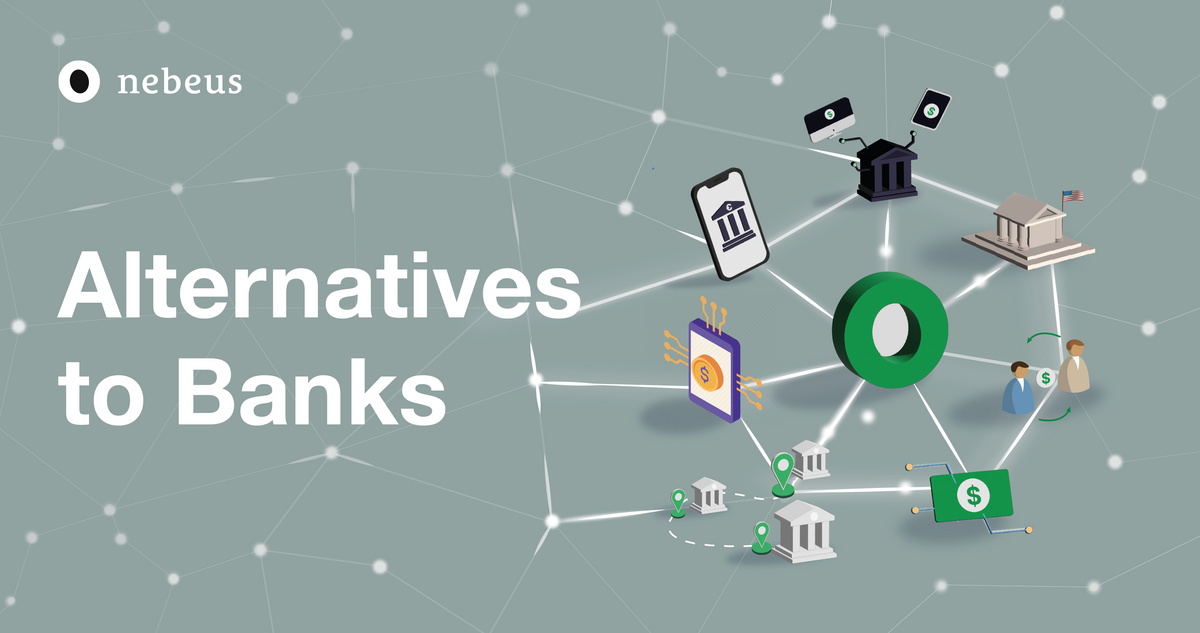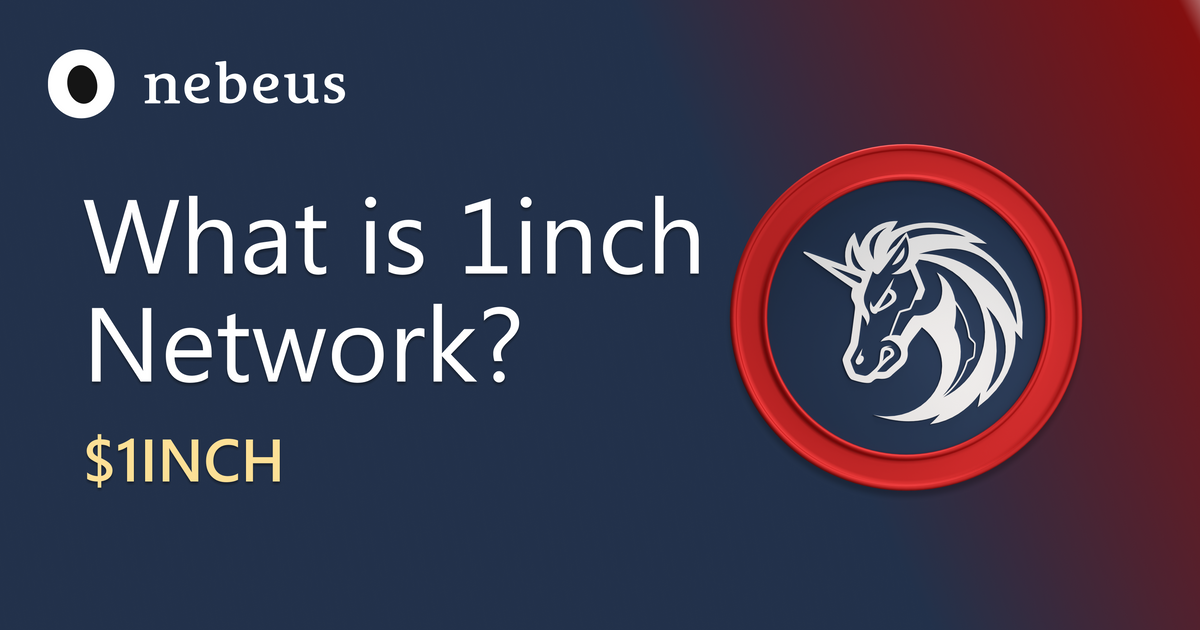In modern society, banks have been the foundation of handling finances for a majority of people. The method of dealing with such financial institutions, being able to go to physical, traditional banks, provide and clear cheques, access money through a credit or debit card, a traditional bank account and sort code number, are all stable yet traditional methods when it comes to handling one's finances.
Are there alternatives to banks?
Nevertheless, there have always been alternatives to banks, and we live in a period of time where a new banking alternative to traditional branks is created every other day.
So what are the main banking alternative methods, and how do they weigh against the traditional?
Online Banking: What are Online Banks?
Online banking is a service that allows customers have cash management accounts to conduct transactions over the internet.
This can include activities such as checking account balances, transferring money between a bank account and savings accounts, and paying bills. Customers can typically access their online bank account by logging in to a website provided by their bank.
What are the advantages of online banks?
Online banks and a cash management account offer a number of advantages over traditional banking methods.
For one, online banks are convenient, as they allows customers to conduct transactions from anywhere with an internet connection.
Additionally, online banks are often more affordable than traditional banking, as there are no fees associated with most online transactions.
Finally, online banks can be more secure than traditional banking, as customers can often use stronger passwords and take other measures to protect their online bank account information.
What are the disadvantages of online banks?
Despite its advantages, online banks do have some drawbacks. For one, it can be difficult to troubleshoot technical problems that may arise.
Additionally, some customers may find navigating online banks and an online bank website difficult. Finally, online banks can be less personal than traditional banking, as customers are not able to interact with bank employees in person.
Overall, an online bank is a convenient, affordable, and secure way to conduct transactions. Online banks offer a number of advantages over traditional banking methods and is becoming increasingly popular.
Regional Banks
Regional banks have been around for centuries and have been a reliable source of banking and financial services for their communities, acting as one of the alternatives to traditional banks.
In recent years, these traditional banks have been overshadowed by the megabanks, which have become dominant in the banking industry. However, regional banks are coming back as consumers look for alternatives to the megabanks.
What are the advantages of regional banks?
One reason for the comeback of regional banks is the trust that consumers have in them. Regional banks have a strong presence in their local communities and are known for their customer service.
In addition, regional banks offer products and services that are not available at the megabanks. For example, regional banks typically have more branches in rural areas, which is important for people who live in rural areas.
Another reason for the comeback of regional banks is the competitive rates they offer on mortgages and other loans.
Regional banks are able to offer these competitive rates because they are not as big as megabanks. This is important for consumers who are looking for a good deal on a loan.
The comeback of regional banks is good news for consumers and the economy. Regional banks are committed to their local communities and offer competitive rates on products and services.
What are the disadvantages of regional banks?
However, many times they lack the innovation and technology, which usually brings higher convenience to the customers, as they do not have the same resources as other institutions.
Electronic Money Institution (EMI)
Electronic money institutions are businesses that provide electronic money services.
These services can include issuing electronic money, exchanging electronic money, and providing payment services. Electronic money is a digital form of currency that can be used to purchase goods and services online.
There are a number of different electronic money institutions, each with their own unique services.
Some of the most popular electronic money institutions include PayPal, Apple Pay, and Google Wallet.
Each of these institutions offers a variety of services that allow users to pay for goods and banking services online. They also allow users to store money electronically and make payments using their phones or other devices.

What are the advantages of Electronic money institutions?
Electronic money institutions offer a number of benefits to consumers. They allow users to make online payments without having to use a credit card.
They also allow users to store money electronically and access it anytime, anywhere.
Additionally, electronic money institutions offer a variety of security features that help protect users' money and personal information.
If you're looking for a way to pay for goods and services online, electronic money institutions are a great option.
They offer a variety of services that allow users to make payments quickly and easily.
They also offer a number of security features that help protect users' money and personal information.
Peer to Peer Lending (P2P)
Peer-to-peer (P2P) platforms have been around for over a decade, with the first platform, Napster, launching in 1999, that involved peer-to-peer file sharing.
The P2P model allows for direct transactions between two or more parties without the need for a third party.
This is done by using a distributed ledger, which is a database that is shared across a network of computers. This allows for secure and transparent transactions.
What are the advantages of Peer to Peer Lending (P2P)?
P2P platforms have been gaining in popularity in recent years, as they offer a number of advantages over traditional banking;
First, P2P platforms are more convenient and faster than traditional banking. Transactions can be completed in a matter of minutes, rather than days.
Second, P2P platforms are often cheaper than traditional banking. Fees for transactions and holding funds in a bank account are often much higher than fees on P2P platforms.
Third, P2P platforms offer a wider range of banking services than traditional banking. Services such as lending and borrowing money, investing, and insurance are all available on P2P platforms.
Credit Union
Credit unions are nonprofit, member-owned, community banks and organizations that offer banking services, such as a bank account, a checking account, savings accounts, loans, and credit cards, to their members.
Credit unions are regulated by the National Credit Union Administration (NCUA), which is part of the U.S. Department of the Treasury.
What are the advantages of a Credit Union bank account?
Credit unions offer a number of benefits over a traditional bank.
For starters, credit unions typically have lower interest rates on loans and credit cards.
Credit unions may also offer higher interest rates on a savings accounts and checking bank account.
In addition to the better interest rates, Credit unions also typically have lower fees than traditional banks.
What are the disadvantages of Credit Unions?
Nevertheless, despite these improved interest rates, Credit unions tend to offer fewer financial services and minor online technology, so credit unions are more primitive.
In order to join a credit union or credit unions, you typically need to be a member of a certain group, such as a labour union, a church, or a school. Some credit unions also allow anyone to join by paying a small membership fee.
Fintech Banking
With the advent of fintech banking, there are now viable alternatives to a traditional bank. Fintech banking is a type of banking that uses technology to provide financial services. This can include online banking, mobile banking, and even banking done through social media channels.
What are the advantages of Fintech Banking?
One of the advantages of fintech banking is that it is often more convenient than a traditional bank. For example, with mobile banking, you can check your bank account balance or make a payment using your smartphone. This can be especially helpful if you are on the go.
Another advantage of fintech banking is that it is often more affordable than traditional banking. For example, many fintech banks do not charge a monthly fee for their services. This can save you a lot of money over the course of a year.
Overall, fintech banking is one of the great alternatives to traditional banks. It is more convenient and often more affordable.
If you are looking for a better banking experience, then you should consider switching to a fintech bank.
Nebeus
Nebeus is a blockchain-based platform that offers users an alternative to traditional banks.
With Nebeus, users can access a wide range of financial services, including global payments, crypto savings bank accounts, cryptocurrency trading, and more.
On the contrary, traditional banks tend to block bank accounts and transfers related to cryptocurrencies. Hence, customers who desire to adopt new financing methods find it difficult to do so.
With the modern world incorporating new currencies, retail stores accepting Bitcoin payments and central traditional banks developing their own Central Bank Digital Currency (CBDC), blockchain is here to stay. The utopian future is regulating crypto into a banking framework.
Nebeus has done just that.
Nebeus is regulated by the Bank of Spain as a cryptocurrency custodian and has a VASP license to provide services in the European Union. It offers a wide range of crypto services with a payment framework for personal and business accounts.
If you are interested in simplifying your finances and merging crypto and banking, you can sign up for a Nebeus digital account in a couple of minutes.
FAQ
Could crypto replace banks?
Cryptocurrencies are increasingly becoming a powerful contender in the financial sector.
Their potential to foster swift, peer-to-peer transactions without the need for intermediaries, alongside the enhanced security provided by blockchain technology, make them an innovative alternative to traditional banks.
While a full replacement is not on the horizon yet due to regulatory and acceptance factors, the adoption and integration of cryptocurrencies and blockchain technology into financial systems are accelerating.
This indicates a promising future where they could potentially coexist with or even surpass traditional banking systems.
How is crypto better than banks?
Cryptocurrencies offer several substantial advantages over traditional banking.
They facilitate faster transactions that can be conducted anytime, anywhere, breaking the restrictions of time zones and working hours typical in traditional banking.
This increased efficiency coupled with lower transaction costs makes cryptocurrencies an enticing alternative.
Furthermore, the decentralized nature of cryptocurrencies offers a new level of financial freedom and inclusivity, reaching individuals who are unbanked or underbanked, and providing a means to maintain more control over one's own finances.
Can you buy crypto without a bank?
Yes, you can buy cryptocurrencies without using a traditional bank.
One common method is through peer-to-peer (P2P) exchanges, where you can buy crypto directly from other individuals using various payment methods.
Additionally, some crypto ATMs allow you to buy cryptocurrencies using cash or a debit card.
Remember, however, that while it is possible, buying crypto without a bank might be less convenient and could have higher transaction costs.
Nebeus is a secure and reliable platform to buy, hold, insure, and transfer your investments. Sign up for a Nebeus account today.
La inversión en criptoactivos no está regulada, puede no ser adecuada para inversores minoristas y se puede perder la totalidad del monto invertido.










